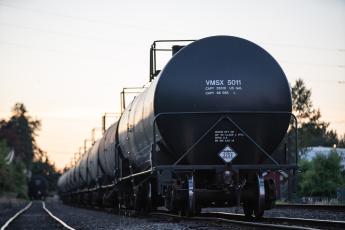AFPM responds to FRA Rail Integrity Final Rule
WASHINGTON, D.C. – Yesterday the Federal Railroad Administration published its Rail Integrity and Track Safety Standards final rule in the Federal Register.
Key Considerations for Fuel and Petrochemical Companies Pursuing Digital Transformation
Beyond digitization (converting analog information to digital) and digitalization (the technology-driven shift to business processes) lies digital transformation.
The refining and petrochemical industries: 170 years of innovation
The fuel and petrochemical manufacturing industries have come a long way from the simple thermal stills used to create kerosene in the 19th century to today’s sophisticated, high-tech and complex facilities that help provide America — and the world — with the fuels, petrochemicals and products that we all rely upon every day.
AFPM Statement on Save Our Seas Act
WASHINGTON, D.C. – Chet Thompson, president and CEO of the American Fuel and Petrochemical Manufacturers, today issued the following statement applauding the passage of S. 1982, the Save Our Seas Act.
Pipelines Q&A with Robert Benedict
Increasing public interest in pipelines in recent months prompted us to speak with AFPM Senior Director of Petrochemicals, Transportation, and Infrastructure Rob Benedict to gain some insight into the hidden role of pipelines in our everyday lives.
AFPM Statement on California ICE Vehicle Ban
WASHINGTON, D.C. – AFPM President and CEO Chet Thompson today issued the following statement in response to Gov. Newsom’s executive order outlining his aspirational goal to ban the sale of new passenger cars and trucks with internal combustion engines.
RFS Announcement Another Trump Betrayal of U.S. Refinery Workers
WASHINGTON, D.C. – AFPM president & CEO Chet Thompson issued the following statement in response to EPA’s announcement this morning that it will reject all small refinery “gap year” requests for relief from Renewable Fuel Standard regulatory obligations and fast-track regulations to encourage the sale of more E15 gasoline.
AFPM Statement on Gap Year Waivers
WASHINGTON, D.C. – AFPM released the following statement today in response to media reports that the White House has instructed EPA to deny retroactive waivers to small refineries seeking hardship relief.
RFS: Fix the Mess
Ethanol is a valuable source of octane in fuel, but there is a limit to how much our gasoline can take. Today, there simply isn’t the fuel demand, infrastructure or consumer appetite to absorb an arbitrary 15-billion gallons of ethanol.









